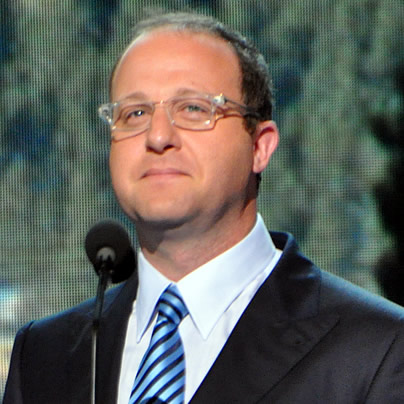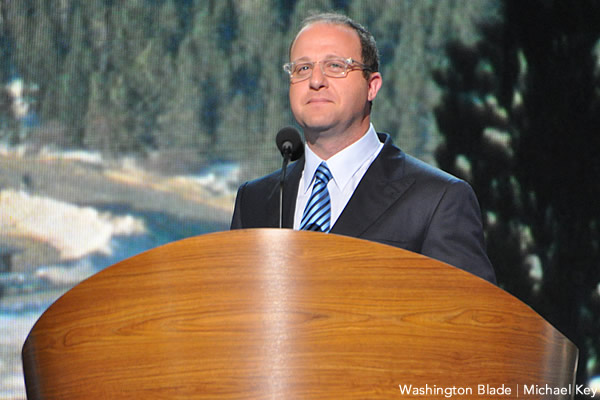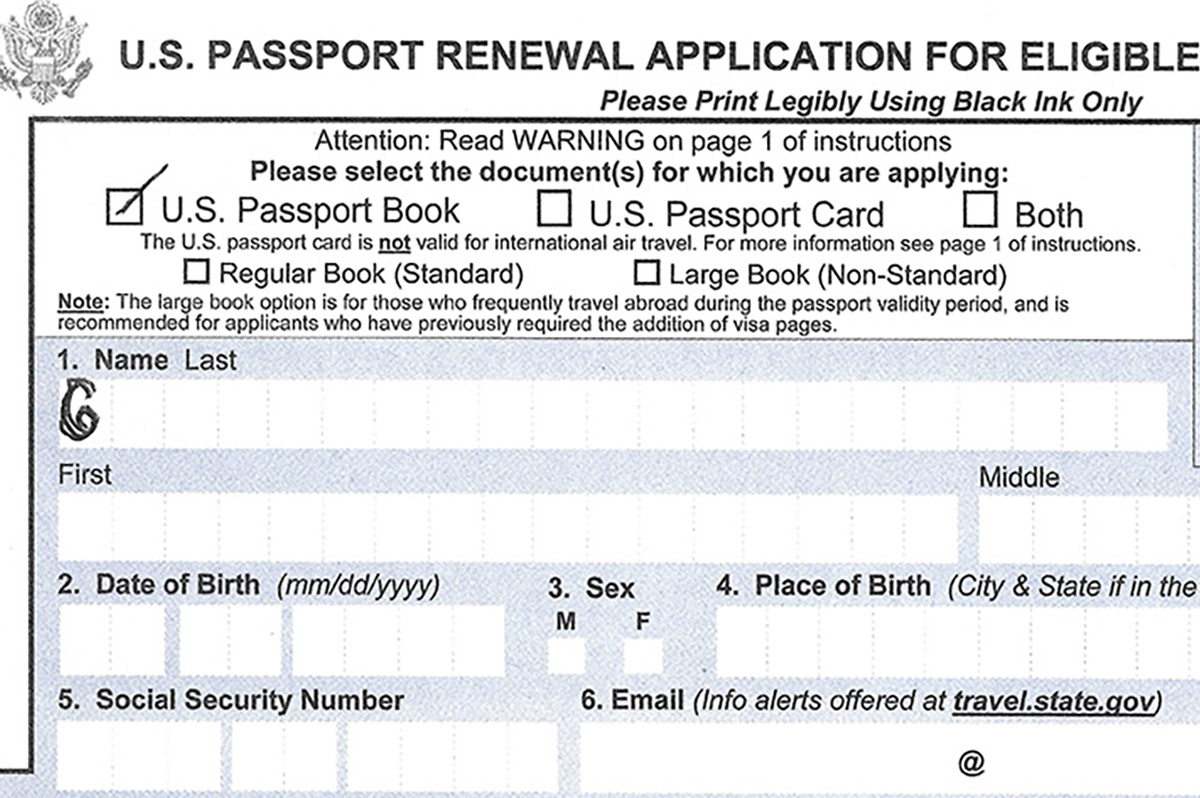National
ENDA under review prior to April reintroduction
Insiders mum on possible changes to bill


Rep. Jared Polis (D-Colo.) acknowledged a review process is underway for ENDA. (Washington Blade photo by Michael Key)
A long-standing piece of pro-LGBT legislation is under review and may be redrafted prior to its expected introduction in the U.S. House next month.
In an interview with the Washington Blade on Wednesday, Rep. Jared Polis (D-Colo.), the senior openly gay member of the U.S. House, announced that he plans to introduce in April the Employment Non-Discrimination Act, a measure that would bar workplace discrimination against LGBT people.
“I’ll be the lead author of ENDA, which we are at least planning to reintroduce in April,” Polis said.
Multiple sources familiar with ENDA say the legislation is being reconsidered before its reintroduction in the 113th Congress, and maintain no final decisions on the bill have been made.
It’s unclear what the nature of the changes might be, but one source familiar with ENDA told the Washington Blade the bill is being reconsidered with respect to religious exemption and disparate impact to make the legislation’s protections stronger for LGBT workers than previously written. The changes are being considered under the assumption the legislation won’t pass anyway with Republicans in control of the U.S. House.
ENDA has previously included a strong religious exemption. In the most recent version of the bill, Section 6 provided an exemption for religious organizations and businesses that were also exempt under Title VII of the Civil Rights Acts of 1964.
The legislation also avoided the issue of disparate impact. Under that doctrine, which is found under Title VII, a violation of the law may be found if an employer has a practice that discriminates against workers, even though it doesn’t seem discriminatory on its face.
For example, a company that says it won’t hire anyone for a job who’s shorter than 5’10” could be found in violation of the law on the basis of gender discrimination because most women aren’t that tall. It’s unclear how disparate impact would apply to LGBT people.
Polis declined to identify any specific changes being contemplated to ENDA, but acknowledged a review process is underway.
“We’re going through ENDA now and have been working with many of the advocacy groups and my staff, and the [LGBT] Equality Caucus staff to make sure that concerns are addressed, and we’re going through that now,” Polis said.
In response to a follow-up question about whether changes would be made with respect to the religious exemption or disparate impact, Polis reiterated that a review process is happening.
“There haven’t been any decisions made yet about that,” Polis said. “We’re listening. We’re listening to folks in the equality community, and there are many different ideas on how to improve ENDA and we’re evaluating them and seeing where we have consensus.”
There may be other ways in which the bill is being reconsidered but no sources specifically identified any such changes to the Blade.
One possible change may be the way ENDA applies to small businesses. Under previous versions of the bill, the law would only apply to employers with 15 or more employees. Companies with fewer employees would be free to discriminate under federal law even if ENDA were passed.
LGBT advocacy groups that work on ENDA responded to the Blade’s inquiries on whether changes would be made to the bill by confirming the review process is underway.
Fred Sainz, vice president of communications for the Human Rights Campaign, said all pro-LGBT legislation is reviewed prior to reintroduction at the start of a new Congress.
“Every Congress, legislation is reviewed with an eye toward making any needed changes or improvements,” Sainz said. “The goal is always to better the lives of LGBT people. This process is underway with every piece of legislation.”
Ian Thompson, legislative representative for the American Civil Liberties Union, also acknowledged the review process and said he welcomes changes that would provide stronger protections for LGBT people.
“Prior to reintroduction in any Congress, legislation should always be reviewed in light of political and legal developments that may necessitate changes,” Thompson said. “I am firmly of the belief that this should always be done with an eye toward securing the strongest possible protections for LGBT people.”
Tico Almeida, president of Freedom to Work, declined to comment.
Lesbian Sen. Tammy Baldwin (D-Wis.) told SiriusXM Out Q’s Michelangelo Signorile in an interview this week that stakeholders are working the bill by “getting it in final form.”
“Right now the author of the legislation is engaged in negotiations to put finishing touches on the version of the bill that will be introduced, perhaps right after the break for Easter and Passover,” Baldwin said.
It’s not yet clear whether the final language for ENDA in the House version of the bill sponsored by Polis and the Senate bill that Sen. Jeff Merkley (D-Ore.) has previously sponsored would be identical. Polis suggested the two versions of the bill may be different when asked if his introduction of ENDA would be concurrent with Merkley’s introduction of the bill.
“No decision made in terms of that,” Polis said. “Those are also [decisions] to be made in terms of do you do it on the same day, and do you do different versions or the same version. There are always all those decisions to be made around timing of bills.”
Jamal Raad, a Merkley spokesperson, said a bipartisan group of lawmakers is at work on ENDA prior to its reintroduction, identifying Sen. Mark Kirk (R-Ill.), who’s been an original co-sponsor in the past.
“We are currently working with Senator Kirk’s team and stakeholders, and hope to reintroduce soon,” Raad said.
Asked if any changes would be made to ENDA, Raad replied, “We are reviewing the language with cosponsors and stakeholders, but no decision has been made.”
Stakeholders affirmed that they’re committed to ensuring the bill includes protections based on gender identity and expression. Polis maintained he wants an inclusive bill.
“I’m firmly committed to ensuring this is an inclusive bill and will address the issue of discrimination in the transgender community,” Polis said.
Asked to clarify whether the gender identity protections would be modified in any way, Polis said a listening process is underway without identifying any change in particular.
“We are in the process of listening to folks in the equality community — both the transgender community as well as the gay community,” Polis said. “We’ve gotten a lot of good input into improving the bill. We’re trying to see where we can forge consensus, and again, no decisions have been made about the final language.”
In 2007, former Rep. Barney Frank (D-Mass.) invoked the ire of many in the LGBT community when he advanced a version of ENDA without the gender identity protections, saying the votes weren’t present to pass a transgender-inclusive bill. Frank later came to believe ENDA must be passed with gender identity protections.
U.S. Federal Courts
Second federal lawsuit filed against White House passport policy
Two of seven plaintiffs live in Md.

Lambda Legal on April 25 filed a federal lawsuit on behalf of seven transgender and nonbinary people who are challenging the Trump-Vance administration’s passport policy.
The lawsuit, which Lambda Legal filed in U.S. District Court for the District of Maryland in Baltimore, alleges the policy that bans the State Department from issuing passports with “X” gender markers “has caused and is causing grave and immediate harm to transgender people like plaintiffs, in violation of their constitutional rights to equal protection.”
Two of the seven plaintiffs — Jill Tran and Peter Poe — live in Maryland. The State Department, Secretary of State Marco Rubio, and the federal government are defendants.
“The discriminatory passport policy exposes transgender U.S. citizens to harassment, abuse, and discrimination, in some cases endangering them abroad or preventing them from traveling, by forcing them to use identification documents that share private information against their wishes,” said Lambda Legal in a press release.
Zander Schlacter, a New York-based textile artist and designer, is the lead plaintiff.
The lawsuit notes he legally changed his name and gender in New York.
Schlacter less than a week before President Donald Trump’s inauguration “sent an expedited application to update his legal name on his passport, using form DS-5504.”
Trump once he took office signed an executive order that banned the State Department from issuing passports with “X” gender markers. The lawsuit notes Schlacter received his new passport in February.
“The passport has his correct legal name, but now has an incorrect sex marker of ‘F’ or ‘female,'” notes the lawsuit. “Mr. Schlacter also received a letter from the State Department notifying him that ‘the date of birth, place of birth, name, or sex was corrected on your passport application,’ with ‘sex’ circled in red. The stated reason was ‘to correct your information to show your biological sex at birth.'”
“I, like many transgender people, experience fear of harassment or violence when moving through public spaces, especially where a photo ID is required,” said Schlacter in the press release that announced the lawsuit. “My safety is further at risk because of my inaccurate passport. I am unwilling to subject myself and my family to the threat of harassment and discrimination at the hands of border officials or anyone who views my passport.”
Former Secretary of State Antony Blinken in June 2021 announced the State Department would begin to issue gender-neutral passports and documents for American citizens who were born overseas.
Dana Zzyym, an intersex U.S. Navy veteran who identifies as nonbinary, in 2015 filed a federal lawsuit against the State Department after it denied their application for a passport with an “X” gender marker. Zzyym in October 2021 received the first gender-neutral American passport.
Lambda Legal represented Zzyym.
The State Department policy took effect on April 11, 2022.
Trump signed his executive order shortly after he took office in January. Germany, Denmark, Finland, and the Netherlands are among the countries that have issued travel advisories for trans and nonbinary people who plan to visit the U.S.
A federal judge in Boston earlier this month issued a preliminary injunction against the executive order. The American Civil Liberties Union filed the lawsuit on behalf of seven trans and nonbinary people.
Federal Government
HHS to retire 988 crisis lifeline for LGBTQ youth
Trevor Project warns the move will ‘put their lives at risk’

The U.S. Department of Health and Human Services is planning to retire the national 988 crisis lifeline for LGBTQ youth on Oct. 1, according to a preliminary budget document obtained by the Washington Post.
Introduced during the Biden-Harris administration in 2022, the hotline connects callers with counselors who are trained to work with this population, who are four times likelier to attempt suicide than their cisgender or heterosexual counterparts.
“Suicide prevention is about risk, not identity,” said Jaymes Black, CEO of the Trevor Project, which provides emergency crisis support for LGBTQ youth and has contracted with HHS to take calls routed through 988.
“Ending the 988 Suicide and Crisis Lifeline’s LGBTQ+ youth specialized services will not just strip away access from millions of LGBTQ+ kids and teens — it will put their lives at risk,” they said in a statement. “These programs were implemented to address a proven, unprecedented, and ongoing mental health crisis among our nation’s young people with strong bipartisan support in Congress and signed into law by President Trump himself.”
“I want to be clear to all LGBTQ+ young people: This news, while upsetting, is not final,” Black said. “And regardless of federal funding shifts, the Trevor Project remains available 24/7 for anyone who needs us, just as we always have.”
The service for LGBTQ youth has received 1.3 million calls, texts, or chats since its debut, with an average of 2,100 contacts per day in February.
“I worry deeply that we will see more LGBTQ young people reach a crisis state and not have anyone there to help them through that,” said Janson Wu, director of advocacy and government affairs at the Trevor Project. “I worry that LGBTQ young people will reach out to 988 and not receive a compassionate and welcoming voice on the other end — and that will only deepen their crisis.”
Under Trump’s HHS secretary, Robert F. Kennedy, Jr., the agency’s departments and divisions have experienced drastic cuts, with a planned reduction in force of 20,000 full-time employees. The Substance Abuse and Mental Health Services Administration has been sunset and mental health services consolidated into the newly formed Administration for a Healthy America.
The budget document reveals, per Mother Jones, “further sweeping cuts to HHS, including a 40 percent budget cut to the National Institutes of Health; elimination of funding for Head Start, the early childhood education program for low-income families; and a 44 percent funding cut to the Centers for Disease Control, including all the agency’s chronic disease programs.”
U.S. Supreme Court
Supreme Court hears oral arguments in LGBTQ education case
Mahmoud v. Taylor plaintiffs argue for right to opt-out of LGBTQ inclusive lessons

The U.S. Supreme Court on Tuesday heard oral arguments in Mahmoud v. Taylor, a case about whether Montgomery County, Md., public schools violated the First Amendment rights of parents by not providing them an opportunity to opt their children out of reading storybooks that were part of an LGBTQ-inclusive literacy curriculum.
The school district voted in early 2022 to allow books featuring LGBTQ characters in elementary school language arts classes. When the county announced that parents would not be able to excuse their kids from these lessons, they sued on the grounds that their freedom to exercise the teachings of their Muslim, Jewish, and Christian faiths had been infringed.
The lower federal courts declined to compel the district to temporarily provide advance notice and an opportunity to opt-out of the LGBTQ inclusive curricula, and the 4th U.S. Circuit Court of Appeals determined that the parents had not shown that exposure to the storybooks compelled them to violate their religion.
“LGBTQ+ stories matter,” Human Rights Campaign President Kelley Robinson said in a statement Tuesday. “They matter so students can see themselves and their families in the books they read — so they can know they’re not alone. And they matter for all students who need to learn about the world around them and understand that while we may all be different, we all deserve to be valued and loved.”
She added, “All students lose when we limit what they can learn, what they can read, and what their teachers can say. The Supreme Court should reject this attempt to silence our educators and ban our stories.”
GLAD Law, NCLR, Family Equality, and COLAGE submitted a 40-page amicus brief on April 9, which argued the storybooks “fit squarely” within the district’s language arts curriculum, the petitioners challenging the materials incorrectly characterized them as “specialized curriculum,” and that their request for a “mandated notice-and-opt-out requirement” threatens “to sweep far more broadly.”
Lambda Legal, the Leadership Conference on Civil and Human Rights, PFLAG, and the National Women’s Law Center announced their submission of a 31-page amicus brief in a press release on April 11.
“All students benefit from a school climate that promotes acceptance and respect,” said Karen Loewy, senior counsel and director of constitutional law practice at Lambda Legal. “Ensuring that students can see themselves in the curriculum and learn about students who are different is critical for creating a positive school environment. This is particularly crucial for LGBTQ+ students and students with LGBTQ+ family members who already face unique challenges.”
The organizations’ brief cited extensive social science research pointing to the benefits of LGBTQ-inclusive instruction like “age-appropriate storybooks featuring diverse families and identities” benefits all students regardless of their identities.
Also weighing in with amici briefs on behalf of Montgomery County Public Schools were the National Education Association, the ACLU, and the American Psychological Association.
Those writing in support of the parents challenging the district’s policy included the Center for American Liberty, the Manhattan Institute, Parents Defending Education, the Alliance Defending Freedom, the Trump-Vance administration’s U.S. Department of Justice, and a coalition of Republican members of Congress.
-

 Virginia3 days ago
Virginia3 days agoYoungkin calls on gay Va. GOP LG candidate to exit race over alleged ‘porn’ scandal
-

 Kenya5 days ago
Kenya5 days agoKenya Red Cross-owned hotel to host anti-LGBTQ conference
-

 Opinions4 days ago
Opinions4 days agoNavigating employer-sponsored health insurance, care
-

 Maryland4 days ago
Maryland4 days agoA Baltimore theater educator lost jobs at Johns Hopkins and the Kennedy Center









